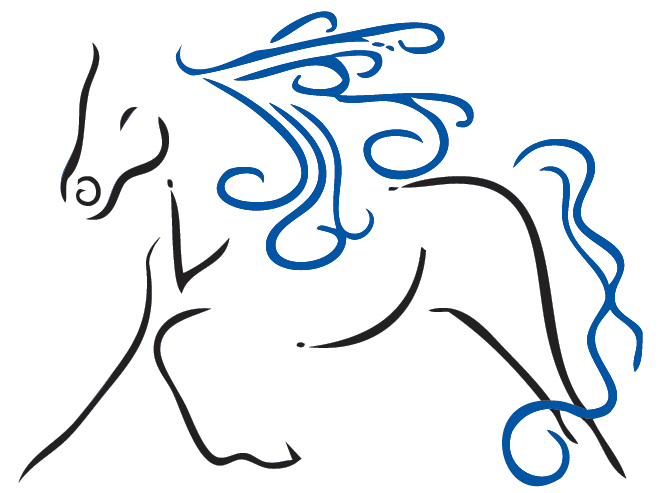Setting Intentions - Staying Focused
As I sit here on my beautiful deck with a lush garden behind me, watching a young Robin fledgling hopping through the flower beds and his Mom bringing him food, I realize how blessed I am. My mock orange is in bloom and the sweet scent is all around me. I have a nice shady spot to write and a cup of good hot coffee, courtesy of my family in Germany. The breeze is just right and when I am finished writing this, I will head out to an organic farmers market to shop for our weekly veggies, supporting not only a local business owner but also the environment. It’s a beautiful summer day. I was once asked how I choose my topics. I don’t have a formula for it. I typically write about something I want to share, something I contemplate, something I learned. But most importantly: I set an intention to write and ask for inspiration.
As I sat contemplating the topic today, my mind couldn’t focus. So I decided to pull a card from one of my decks. And I pulled the Cheetah – with the message: Set your intention and stay focused to achieve your goals!
Losing our cat Gerry recently, I have to admit I spent the last several weeks in a funk. My motivation lagged, my focus gone, the only saving grace was my work with horses. It grounded me, helped me center myself again. And I realized, the one difference between those times and the rest of my life was – I set an intention.
Gerry’s passing made me realize how much I had relied on meeting his needs to center and ground my home life. When he ate, when he wanted the windows open, when he needed snuggle time. Because my INTENTION to make his life the best I could was the driving force behind it all. It guided all my actions and way of being. It anchored me into the here and now because that’s where he lived. He didn’t think about missed opportunities or an unkind comment he heard the day before. He didn’t contemplate what food he would eat tomorrow or if the sun would finally come out. He simply looked for what he needed right then and there in that moment. Living life fully every moment.
Setting an intention is how I start every session – with every horse, with every client. The over-arching principle is always my question to the horse: How can I help you today? What do I need to know? Where do you want me to work? My intention is always: I am here to assist you. Tell me what you need.
I sometimes say it out loud, I may whisper it into an ear, I may just be a silent request – but the horse always answers. Sometimes unsure, sometimes loud and clear, sometimes I will even get the “I don’t need help, I am fine”. But I always get an answer and it always informs my approach to that horse during that session on that day. And the intention is what brings focus to the work, the techniques I use, how much pressure, where to put my hands, for how long. No session is ever the same. I don’t have a routine. Even when I work on a horse regularly, the one constant is my question to the horse and my intention to help.
But when we bring an intention like “what do I need to know today?” to our every interaction with them, we can start peeling back to layers of difference in communication between our two. We can see past “bad behavior”, a “sour attitude” or “he just doesn’t want to work”. We can start seeing it as their way of giving us feedback and we can then tailor a response to their very immediate needs. Setting an intention can help us keep our focus since our lives are full of distraction. It can help quieten our mind so we can listen with our whole being, not just what we hear or see. We can develop our sixth sense so to speak because we become open to a much more subtle level of communication and interaction.
And this in turn allows the horse to trust us on a much deeper level and can build a strong foundation of a beautiful partnership and having a conversation that matters.





